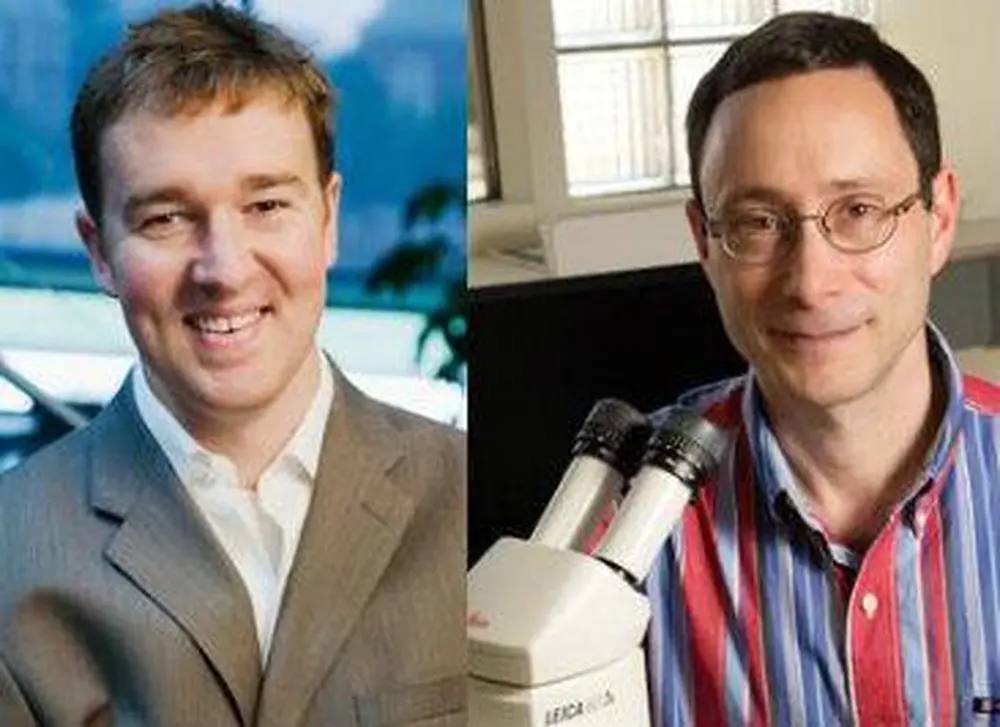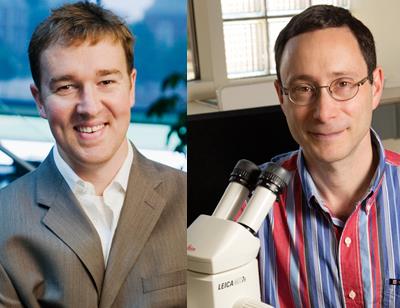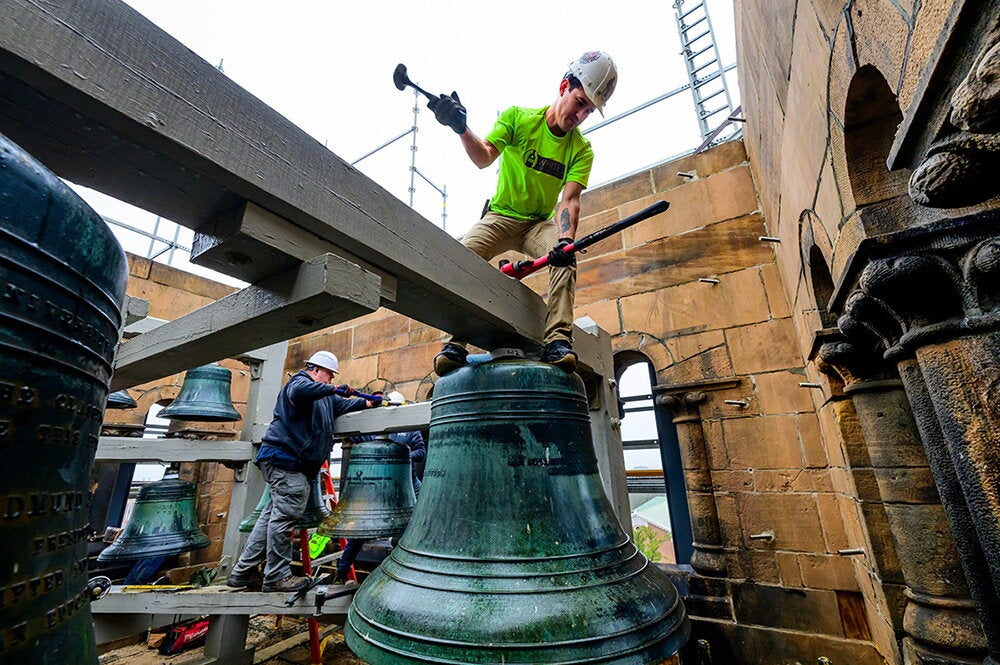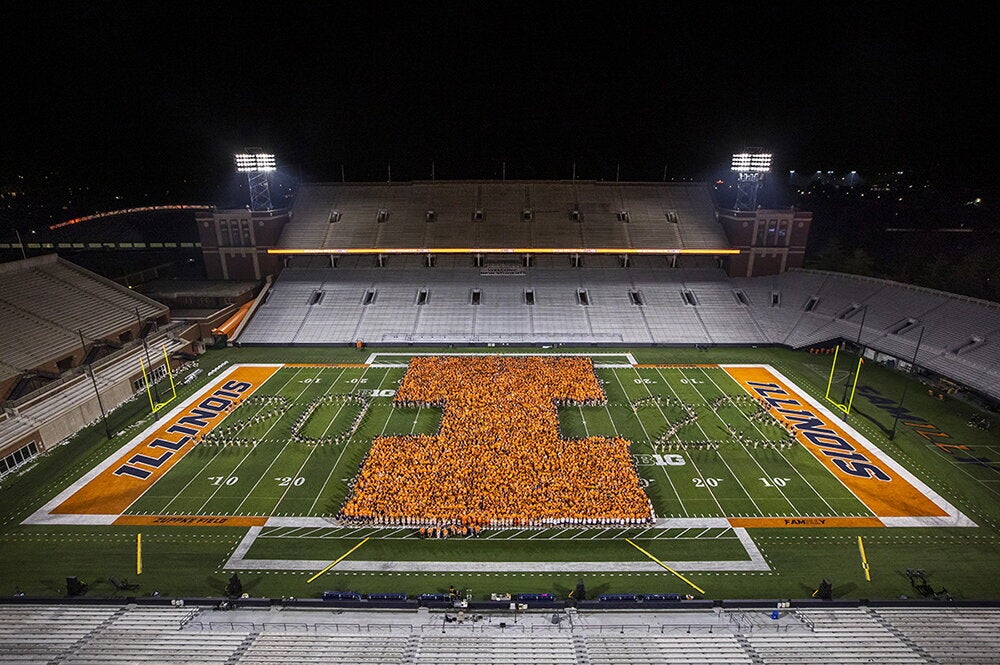

Two professors in the College of Liberal Arts& Sciences are among the latest researchers elected to the American Association for the Advancement of Science (AAAS), a prestigious scientific society composed of those who have made outstanding contributions to their field.
Brendan A. Harley, a professor of chemical and biomolecular engineering, and Phillip A. Newmark, a professor of cell and developmental biology, were among some 400 scientists from around the country selected as 2014 fellows to the AAAS. Four other U of I professors from outside of LAS were also selected.
“These are extraordinary faculty members who are making great contributions in their fields. They are innovators and educators who are committed to addressing the grand challenges of our society,” says Ilesanmi Adesida, the vice chancellor for academic affairs and provost of the Urbana-Champaign campus. “They are prime examples of the scholarship, ingenuity, and quality teaching that are Illinois hallmarks.”
Harley was selected for his contributions to the fields of biomaterials and tissue engineering. His research focuses on developing advanced biomaterials that replicate dynamic, varying environments found in the body. Harley and his research team are creating biomaterials to regenerate musculoskeletal tissues after injury and to study the onset, growth, and treatment of diseases such as cancer.
He joined the U of I faculty in 2008, after earning his ScD (doctor of science) from the Massachusetts Institute of Technology. Harley is a core faculty member at the Institute for Genomic Biology and affiliated with the Departments of Bioengineering, Department of Materials Science and Engineering, and U of I’s Micro and Nanotechnology Laboratory.
Newmark was cited for his work in developmental biology, with particular emphasis on regeneration and germ cell development in flatworms, which carry profound implications for the field of regenerative medicine by their ability to regenerate from just a small sample of tissue. Newmark studies how their stem cells contribute to regeneration and tissue maintenance.
He earned his PhD from the University of Colorado at Boulder in 1994 and joined the U of I faculty in 2001. Newmark is also an investigator of the Howard Hughes Medical Institute, and the recipient of a CAREER Award from National Science Foundation, and a Damon Runyon Scholar Award from the Damon Runyon Cancer Research Foundation. He has been named a University Scholar.
Others at the U of I who were elected this year include Placid M. Ferreira, professor and head of mechanical science and engineering, for his work in manufacturing research; Joseph W. Lyding, professor of electrical and computer engineering, for contributions in nanotechnology and discovery of the giant deuterium isotope effect; Dan Roth, professor of computer science, for innovations in machine learning; and William Sanders, professor and head of electrical and computer engineering, for development of theory and techniques in societal-scale computing systems.
The AAAS, the world’s largest general scientific society, was founded in 1848. Fellows have been elected to the organization since 1874. The organization’s stated goal is to “advance science, engineering, and innovation throughout the world for the benefit of all people.”


